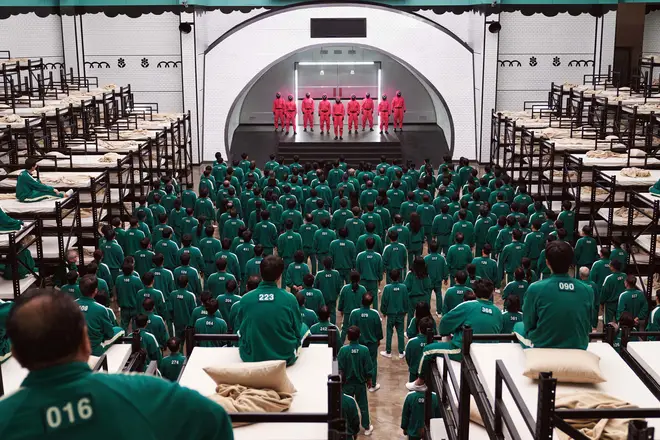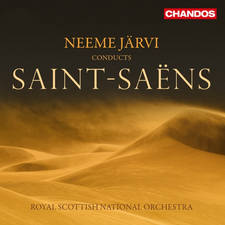Squid Game soundtrack: what classical music is in the Netflix show?
4 January 2024, 13:40 | Updated: 4 January 2024, 17:52

Watch the trailer for Netflix's Squid Game series
Netflix’s ‘Squid Game’ and its reality spin-off ‘Squid Game: The Challenge’ are filled with pieces of classical music – which take on a whole new meaning within the gory South Korean survival drama...
Squid Game burst onto our screen at the end of September 2021 in a blaze of gore, shock, and mystery. But what audiences probably weren’t expecting, was the appearance of some of classical music’s best known works, including Haydn’s eternally popular, and chillingly chirpy in the context of Squid Game, Trumpet Concerto.
The show tells the story of a group of contestants who have the chance to win ₩45.6 billion (£28.5 million) by playing playground games. The catch? If you lose, you die.
Each contestant has chosen to compete in the games as they are in severe debt, giving them the incentive to risk it all for the grand total.
This gory plot is underscored by some familiar pieces from the world of classical music, and after watching this show, you’ll never listen to these works in the same way again. Here’s all you need to know about the pieces of classical music used in both Squid Game and its reality TV spin-off Squid Game: The Challenge, and who composed the TV score.
Read more: A cappella choir flawlessly singing the ‘Squid Game’ soundtrack will haunt your dreams

Who composed the music for Squid Game?
South Korean composer Jung Jae-il composed the music for Squid Game, and handpicked the classical works that are woven into the soundtrack.
Jung has led a prolific career in the music industry, and is most famous in the compositional world for writing the soundtracks to two of South Korea’s biggest films, Parasite (2019), and Okja (2017), both of which were directed by Bong Joon-ho.
He graduated from Seoul Jazz Academy and is a gifted musician, playing piano, guitar, bass, and drums all to advanced levels.
In the Oscar-winning film Parasite, the composer played the musical saw on the track ‘Camping’, and his piercing recorder-playing is one of the first sounds heard by audiences watching Squid Game, with the track ‘Way Back Then’ introducing the show.

Way Back then
‘Way Back Then’ is one of many musical themes that return to underscore the action in Squid Game throughout the series.
This track is notable for its bare texture, using only recorder and percussion at the start of the piece. The full 2:31 track featured on the soundtrack involves further instruments which join in as the piece crescendos to a unison melody.
Another familiar piece is ‘Pink Soldiers’, which on the soundtrack is credited to an artist called 23.
The eerie vocal tune underscores the Pink Soldiers, who are present as a kind of law enforcement during the games.

Squid Game (acapella)
What classical music is used in Squid Game?
Haydn’s Trumpet Concerto
Half an hour into the first episode, the players are woken up by the third and final movement of Haydn’s Trumpet Concerto in E flat major.
This piece becomes a chilling theme throughout the rest of the series, garnering the contestants’ attention at critical points and bringing a sense of unease to both the players, and the audience.
The concerto was composed in 1796 for Haydn’s friend, the trumpet virtuoso, Anton Weidinger. The piece was Haydn’s last major orchestral work, which is clear from the maturity and experience he brings to the composition.
It’s possible Squid Game chose this piece due to the movement’s virtuosic fanfare-style playing. With fanfares often used to announce important figures, opening ceremonies such as the Olympics, and to sound the start of a war, this work is a suitable choice for a show which combines all three themes.

Haydn Trumpet Concerto (3rd Movement): Wynton Marsalis, trumpet
Strauss’ By The Beautiful Blue Danube
Johann Strauss II’s An der schönen, baluen Donau, also known as The Blue Danube waltz, was originally a choral work, despite the most popular arrangement being for orchestra.
Strauss had been commissioned to write the piece for the Vienna Men’s Choral Society in 1866 in order to lift the spirits of the people of Vienna, due to Prussia’s win in the Austrian-Prussian war, that same year.
In that vein, Squid Game has many fatalities, with almost half of all players killed in the first episode.
The clever choice of The Blue Danube as an underscore then for events before and after games alludes to the idea that game makers are trying to lift the spirits of the players, who like the people of Vienna in 1866, have also witnessed tragic losses.

Johann Strauss II - The Blue Danube Waltz
Tchaikovsky’s Serenade for Strings
Tchaikovsky composed his Serenade for Strings in C major from his “inner conviction”.
“It is a heartfelt piece and so, I dare to think, it is not lacking in real qualities,” Tchaikovsky told his patron Nadezhda von Meck in a letter on the work.
Squid Game uses the waltz, the second movement, to mark the end of the second game, and the deliberation involved in the forming of teams for the third.
The waltz is often performed separately to the approximately half-an-hour work as it has gained popularity as a piece in its own right. At its premiere, the movement had to be repeated. Tchaikovsky’s former teacher Anton Rubinstein declared it Tchaikovsky’s best piece.

Tchaikovsky: Waltz from Serenade for strings / Rachlevsky • Chamber Orchestra Kremlin
What pieces of classical music are used in ‘Squid Game: The Challenge’?
- Mozart – ‘Lacrimosa’ from Requiem in D minor
- Johann Strauss II – Kaiser-Walzer
- Johann Strauss II – The Blue Danube Waltz
- Erik Satie – Trois Gnossiennes
- Beethoven – ‘Moonlight’ Sonata
- Mozart – Overture from The Marriage of Figaro
- Bizet – ‘Habanera’ from Carmen
- Johann Strauss II – ‘Histoires de la Forêt Viennoise’
- Elgar – Chanson de Matin
- Tchaikovsky – ‘Waltz of the Flowers’ from The Nutcracker
- Vivaldi – ‘Winter’ from The Four Seasons
- Tchaikovsky – Swan Lake
- Saint-Saëns – ‘Danse Macabre’
- Debussy – ‘Clair de lune’
- Chopin – Nocturne in E flat major
- Brahms – Cradle Song
- Rossini – Overture from The Barber Of Seville
- Vivaldi – ‘Summer’ from The Four Seasons























